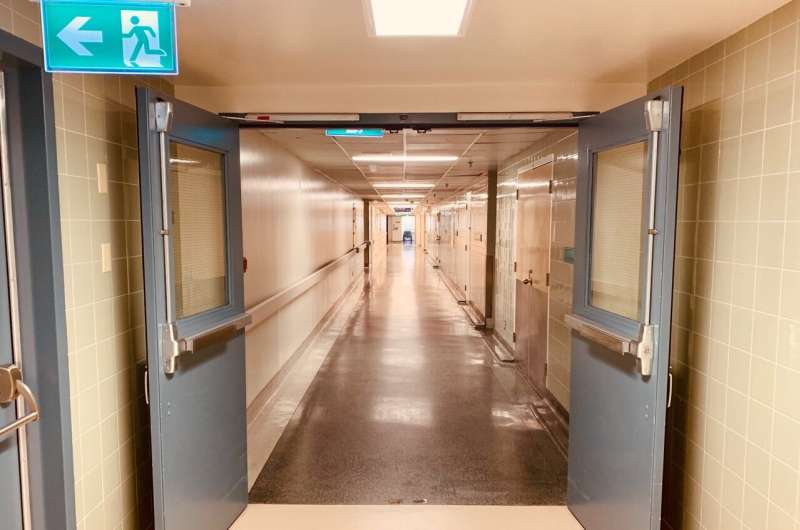Most US hospitals not sharing price information for joint replacement as required

On January 1, 2021, the federal government began requiring U.S. hospitals to maintain clear, accessible online price lists for 300 common services. Yet only 32% of hospital websites sampled a year later were fully compliant with transparency in pricing about knee and hip replacement, according to a study in Clinical Orthopaedics and Related Research.
"Although pricing information was generally available, it frequently did not meet requirements established by the [government] and was oftentimes difficult to access," say the study authors, Atul F. Kamath, MD, MBA, FAAOS, FACS of the Cleveland Clinic Foundation, and colleagues.
Under the Hospital Price Transparency Rule, the Centers for Medicare & Medicaid Services (CMS) now requires hospitals to provide five types of online price information for selected services: the total charge, the charges the hospital privately negotiated with insurers, the minimum and maximum negotiated charges, and the amount the hospital is willing to accept in cash.
Each service must be identifiable by any billing code the hospital uses, and the information must be available in a machine-readable file, free of charge without any personal identifying information required for access.
As a test case, Dr. Kamath and his colleagues searched hospital websites for prices of knee and hip replacement, selecting these procedures because they're widely used, expensive, and generally predictable in terms of cost. Of the 400 hospitals they sampled between December 1 and December 20, 2021, only 32% provided all five types of information. When split into individual procedures, 21% of hospitals provided all five types of information for knee replacement and 18% of hospitals did so for hip replacement.
The researchers also looked at whether hospitals at least provided one key piece of information: the total charge for the procedures. Those rates of compliance weren't much better: 36% of hospitals offered the total charge for knee replacement and 31% did so for hip replacement. Furthermore, 13% of hospitals violated the CMS rule by not providing machine-readable files, and 21% violated it by requiring users to provide personal information.
Although not required by the government, many hospital websites were also lacking in consumer friendliness:
- Only 5% of websites provided price information in a language other than English
- Only 33% of websites offered a phone number to call for assistance
- It took the researchers > 15 minutes to find pricing information on 17% of websites
- 6% of websites provided very large files (> 3 GB) in nontraditional formats that required additional software to read
- 4% of websites did not allow searches by keyword, procedure code, or diagnostic code
"It is possible that hospitals have delayed compliance with the hope that related requirements may change or that current delays in enforcement may continue," the authors note. That may change soon, though. On June 8, CMS announced it has issued its first two penalties to hospitals for noncompliance with the price transparency rule. Penalties will range from $300 to $5,500 per day depending on hospital size.
More information: Robert J. Burkhart et al, Less Than One-third of Hospitals Provide Compliant Price Transparency Information for Total Joint Arthroplasty Procedures, Clinical Orthopaedics & Related Research (2022). DOI: 10.1097/CORR.0000000000002288




















